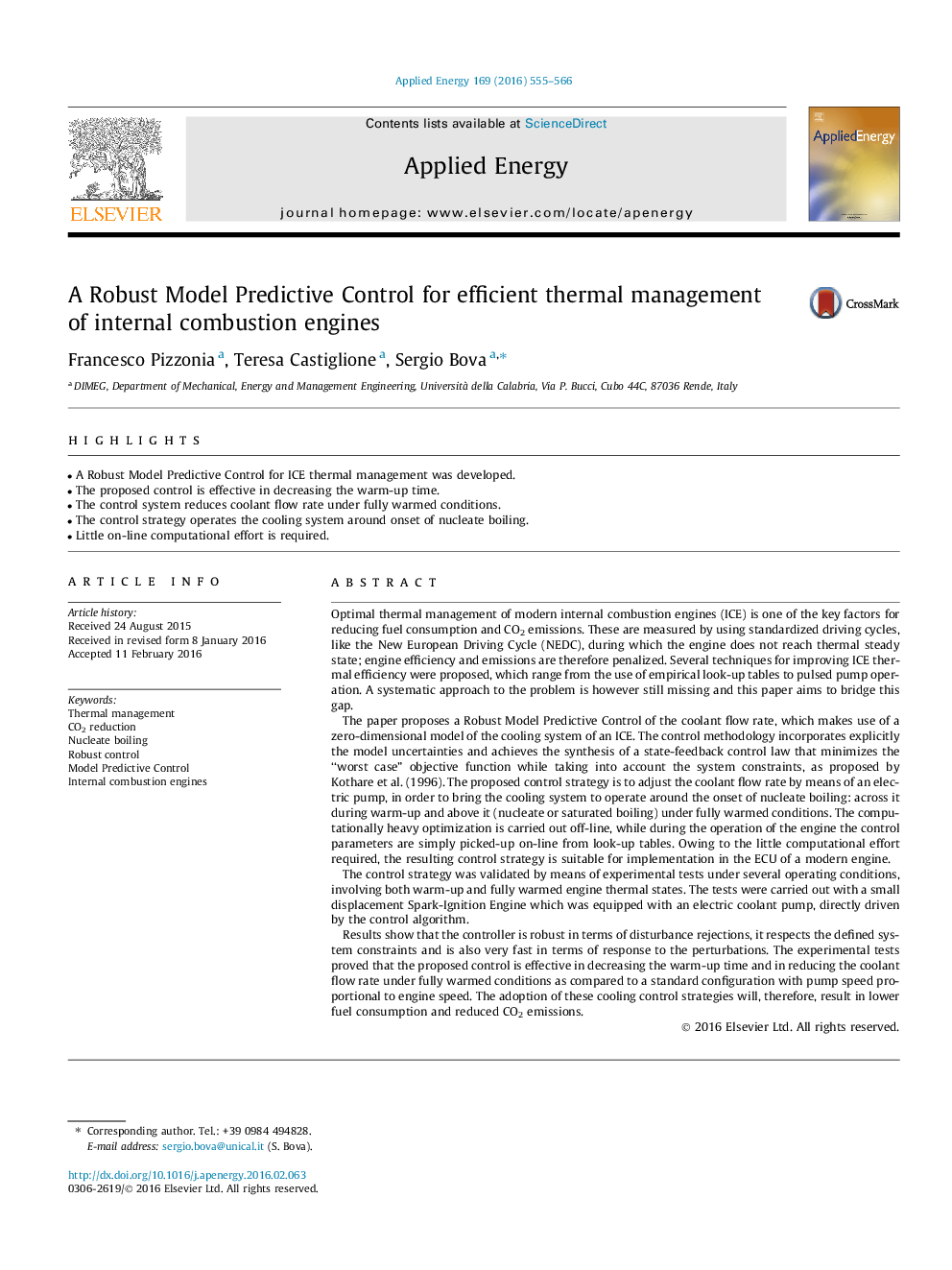| Article ID | Journal | Published Year | Pages | File Type |
|---|---|---|---|---|
| 6683575 | Applied Energy | 2016 | 12 Pages |
Abstract
Results show that the controller is robust in terms of disturbance rejections, it respects the defined system constraints and is also very fast in terms of response to the perturbations. The experimental tests proved that the proposed control is effective in decreasing the warm-up time and in reducing the coolant flow rate under fully warmed conditions as compared to a standard configuration with pump speed proportional to engine speed. The adoption of these cooling control strategies will, therefore, result in lower fuel consumption and reduced CO2 emissions.
Keywords
Related Topics
Physical Sciences and Engineering
Energy
Energy Engineering and Power Technology
Authors
Francesco Pizzonia, Teresa Castiglione, Sergio Bova,
